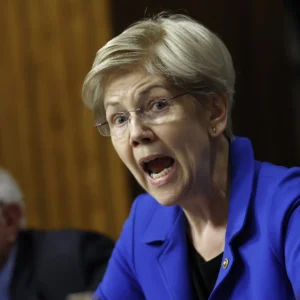Michigan Secretary of State Jocelyn Benson has generated significant controversy by declining to comply with a Department of Justice request for unredacted voter rolls. Benson has defended her decision by saying she is protecting the Social Security numbers and private data of Michigan voters. Critics, however, argue that her refusal raises broader concerns about transparency and accountability within the state’s election system.
Opponents of Benson’s decision suggest that shielding the full voter rolls from federal review may obscure deeper issues, including the possibility of non-citizen registrations or administrative errors. They contend that the state’s reluctance to provide unredacted records leaves unresolved questions about the accuracy and integrity of Michigan’s voter database.
Allegations have surfaced claiming that Michigan’s voter registration system contains a significant number of inaccuracies. Among the examples highlighted is the claim that 333 registered voters listed as age 115 or older are still classified as “ACTIVE” in the system. Observers note that this number appears inconsistent with demographic estimates from the Census Bureau regarding the population of extremely elderly residents in the state.
The story also points to instances in which long-deceased individuals allegedly remained on voter rolls or even appeared to have voting activity recorded. One cited case involves Ardis Barnes, who was reportedly shown as voting decades after his death. Questions about how such data could remain in the system continue to fuel skepticism about Michigan’s voter-roll maintenance practices.
A similar example involves Selma Steel, whose name was said to appear inconsistently across different voter-registration entries. According to the report, Steel was also listed as having cast absentee ballots in multiple elections following her death. These cases are presented as symptomatic of broader systemic weaknesses rather than isolated anomalies.
Such examples have prompted critics to argue that Michigan’s voter-registration and verification procedures require closer scrutiny. Some reports claim that signature-matching protocols were inconsistently applied during the 2020 election cycle, which may have contributed to lingering doubts about the accuracy of certain registrations.
Activists and watchdog groups have continued pressing for deeper investigations into Michigan’s voting records. Their efforts aim to determine whether the alleged irregularities stem from clerical errors, outdated data, or other underlying issues. These groups argue that the public deserves a clearer understanding of how the voter rolls are compiled, monitored, and maintained.
The political implications of these controversies have grown more significant as Benson campaigns in the upcoming gubernatorial race. Her decision to decline the DOJ’s request has been interpreted by critics as a politically charged move, while her supporters frame it as a principled defense of voter privacy.
Michigan’s broader approach to election integrity is now under heightened scrutiny. Ensuring that voter rolls are up-to-date and accurate is widely recognized as an essential part of maintaining confidence in democratic processes, regardless of political affiliation.
As investigations from organizations such as Check My Vote continue, more discrepancies—or clarifications—may emerge. Whether these findings reveal administrative oversights or deeper systemic issues, they are likely to influence public trust and shape the debate over election security in Michigan for years to come.




